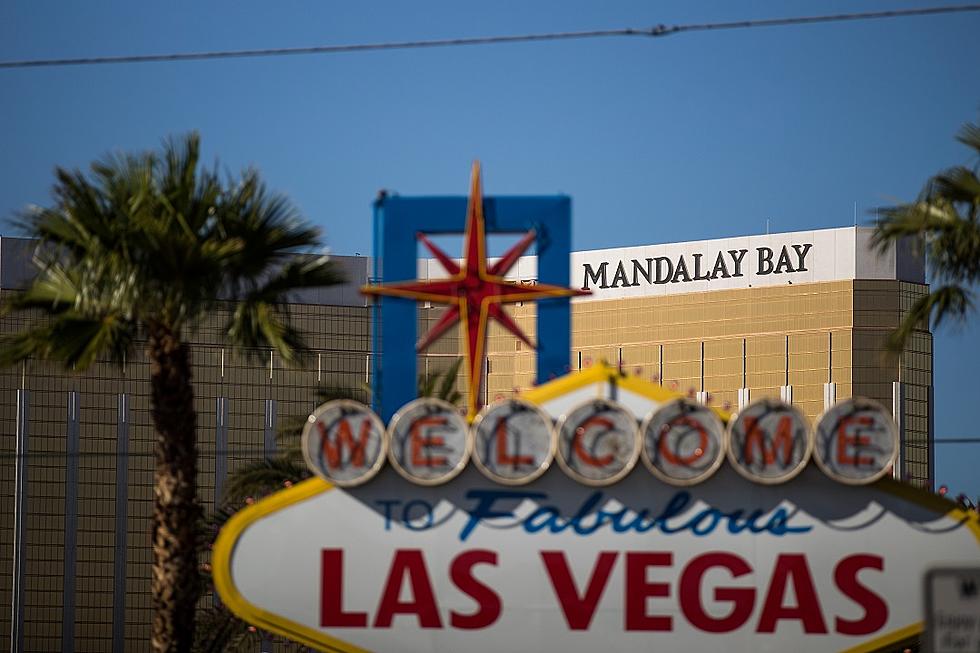
Family of Route 91 Harvest Festival Shooting Victim Files Wrongful Death Lawsuit
The family of Carrie Parsons, one of the 58 people killed during the Oct. 1, 2017, shooting at the 2017 Route 91 Harvest Festival in Las Vegas, Nev., has filed a wrongful death lawsuit against eight gun manufacturers and three firearms dealers. Their suit claims the guns these organizations make and sell are "thinly disguised" machine guns because, those companies know, they can be easily modified to become automatic weapons.
According to Billboard, Parsons' family filed their lawsuit against Colt, seven additional firearms manufacturers and gun stores in Nevada and nearby Utah. They're alleging that both the manufacturers and sellers violated state and federal bans on automatic weapons by highlighting how AR-15 firearms can be easily modified from semi-automatic to fully automatic guns, including with the use of a bump stock device, which is now banned.
James and Ann-Marie Parsons, the parents of 31-year-old Parsons, a Seattle, Wash., resident, are arguing that firearms manufacturers both acknowledged that their guns could be converted from semi- to fully automatic, and promoted that fact. Their lawsuit says those companies showed a “reckless lack of regard for public safety” when they chose to advertise their firearms “as military weapons and signaling the weapon’s ability to be simply modified.”
“It was only a question of when -- not if -- a gunman would take advantage of the ease of modifying AR-15s to fire automatically in order to substantially increase the body count during a mass shooting,” reads the lawsuit. “Having created the conditions that made a mass shooting with a modified AR-15 inevitable, Defendant Manufacturers continued conducting business as usual.”
A 2005 federal law often shields gun manufacturers from lawsuits when their firearms are used in crimes. However, the Parsons family's lawyer, Joshua Koskoff, is also representing relatives of the victims of 2012 shooting at Sandy Hook Elementary School in Newtown, Conn., who, per a recent Connecticut Supreme Court ruling, can sue the gun manufacturer Remington for its marketing of an AR-15-style rifle that was used in that shooting.
Remembering the Route 91 Harvest Festival Shooting Victims
The Route 91 Harvest Festival shooting remains the deadliest non-war mass shooting in U.S. history. In addition to the 58 people who died, more than 800 others were injured when a gunman opened fire on the festival grounds from a nearby hotel during Jason Aldean's festival-closing set. In August of 2018, the FBI closed its investigation into the tragedy without uncovering a motive.
This new lawsuit from Parsons' family is not the first to be filed following the Route 91 Harvest Festival shooting. One of the other related lawsuits, from three victims via the Brady Center to Prevent Gun Violence, came just days after the tragedy, against Slide Fire Solutions, a leading manufacturer of bump stocks, and other unidentified bump stock makers and retailers. Shortly thereafter, one of those injured in the shooting filed suit against Mandalay Bay and its parent company, MGM Resorts International; Route 91 Harvest Festival organizers LiveNation; Slide Fire Solutions; and the estate of the gunman.
In late November of 2017, more than 450 victims of the attack filed lawsuits against LiveNation and Mandalay Bay Resort and Casino; according to the Los Angeles Times, these lawsuits were made in addition to more than a dozen others filed by victims previously. Then, in July, MGM Resorts International, the parent company of Las Vegas' Mandalay Bay Resort and Casino and the Route 91 Harvest Festival grounds, filed federal lawsuits against more than 1,000 victims of the Oct. 1 shooting, arguing that the company cannot be held liable for deaths, injuries or other damages that resulted from the tragedy.
These 19 Country Artist Are in Favor of Gun Law Reform
More From TheBoot




![Eric Church’s ‘Through My Ray-Bans’ Is a Tribute to Route 91 Harvest Festival Fans [LISTEN]](http://townsquare.media/site/204/files/2020/09/Church-ACM-performance.jpg?w=980&q=75)




